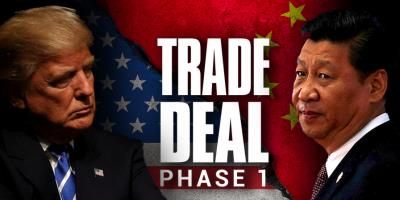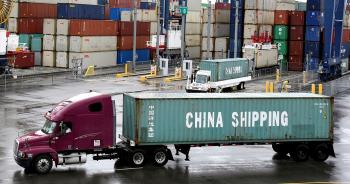 Both China and the U.S. have issued inflammatory statements recently hinting at reneging on the Phase-One Trade Agreement, signed in mid-January. Statements by semi-official organizations in China have urged that the Nation walk away from the agreement. Given the tight control over communications in China, nothing relating to international affairs is issued, printed or posted on news media without some form of central government approval.
Both China and the U.S. have issued inflammatory statements recently hinting at reneging on the Phase-One Trade Agreement, signed in mid-January. Statements by semi-official organizations in China have urged that the Nation walk away from the agreement. Given the tight control over communications in China, nothing relating to international affairs is issued, printed or posted on news media without some form of central government approval.
Statements by those opposed to the U.S. are aggrieved over unsubstantiated accusations that China either deliberately engineered SARS-CoV-2 virus or negligently allowed it to escape from the Wuhan National Institute of Virology. Scientists in the U.S. have refuted Administration accusations, which in past days appear to have been muted. China suffered from COVID-19 and inherent in the concept of ‘face” it is understandable that they are deeply offended by assertions that they were responsible for the pandemic. The culpability of regional authorities in suppressing information on the outbreak, even from their own government is an established fact but should be interpreted in the light of how officialdom operates in China.
 Failing to interpret the response from China in its context, the President has threatened to “tear up the Phase-One Trade deal if China reneges on its purchase obligations.” This would be mutually destructive, since China needs pork and by early summer, soybeans. The U.S. certainly needs the export potential given partial restoration of hog slaughter and a 2020 soybean harvest estimated at 4.13 billion bushels estimated to be 15 percent higher than in 2019.
Failing to interpret the response from China in its context, the President has threatened to “tear up the Phase-One Trade deal if China reneges on its purchase obligations.” This would be mutually destructive, since China needs pork and by early summer, soybeans. The U.S. certainly needs the export potential given partial restoration of hog slaughter and a 2020 soybean harvest estimated at 4.13 billion bushels estimated to be 15 percent higher than in 2019.
It is acknowledged that China was slow in implementing the agreement, partly due to COVID-19 but also by purchasing soybeans from Brazil as is normal during the first half of a calendar year. The agreement did allow for competitive pricing and sourcing and did not specify quantities of specific agricultural commodities to be purchased. Starting a new trade war, while attempting to negotiate Phase Two of a trade agreement, appears a self-defeating strategy. Certainly both parties recognize that from a political perspective President Xi does not have to face his electorate in November.